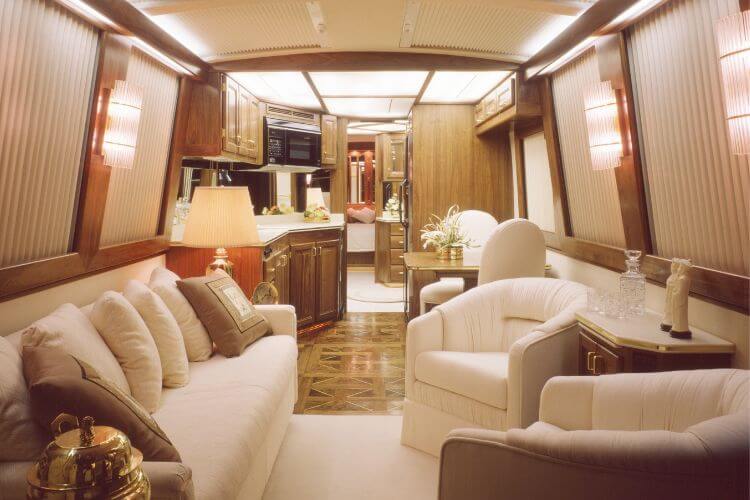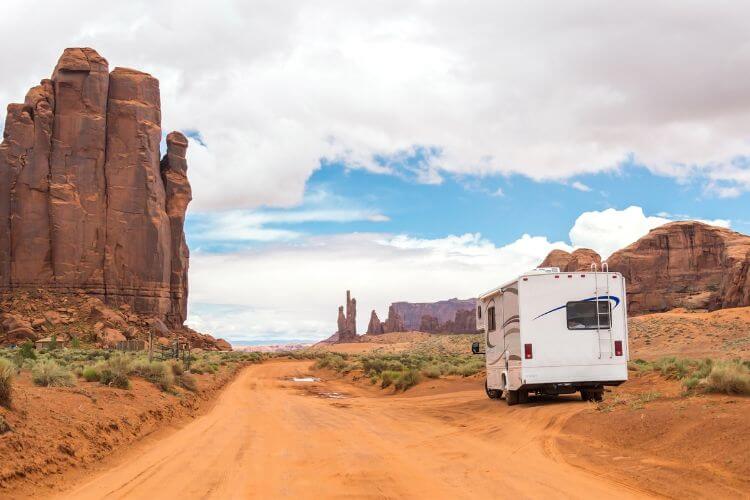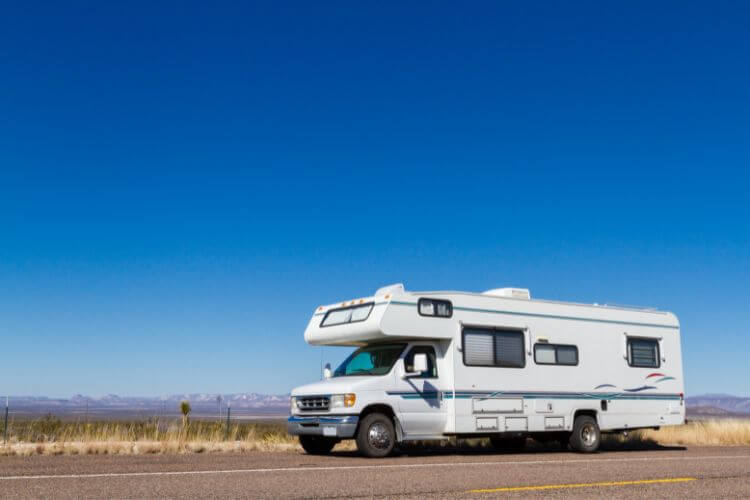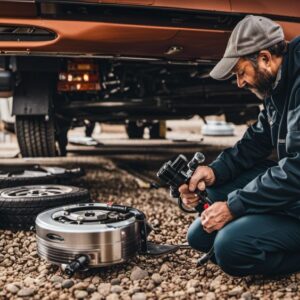If you own a motorhome, you might be wondering if it can be considered a second home for tax purposes. The good news is, according to the Internal Revenue Service (IRS), a motorhome can be considered a second home as long as it meets certain requirements.
One of the primary requirements is that the motorhome must have basic living accommodations, including sleeping, cooking, and toilet facilities. If your motorhome has these features, it can be considered a second home and you may be able to deduct the interest on the loan as mortgage interest on your taxes.
However, keep in mind that you can only have one second home at a time, so if you already own a second home, your motorhome cannot be considered as such.
While owning a motorhome can be a fun and exciting way to travel and explore new places, it’s important to understand the tax implications and requirements associated with it. By knowing the IRS regulations and requirements, you can determine if your motorhome can be considered a second home and potentially save money on your taxes.
Definition of a Second Home
Before we can determine whether a motorhome can be considered a second home, we must first understand the definition of a second home. According to the IRS, a second home is a residence that you own and occupy for part of the year in addition to your primary residence. It must have sleeping, cooking, and toilet facilities, and it must be suitable for year-round use.
While the definition of a second home may seem straightforward, there are some nuances to consider. For example, the IRS considers a second home to be any property that you own and use as a residence, whether it’s a house, a condo, a boat, or an RV. However, there are some limitations to what can be considered a second home for tax purposes.
One limitation is that the property must be used primarily for personal purposes. You cannot claim a property as a second home if you rent it out for more than 14 days a year or if you use it primarily for business purposes.
Additionally, there are some restrictions on the amount of mortgage interest and property taxes that you can deduct on your tax return for a second home.
Overall, the definition of a second home is relatively broad, but there are some restrictions and limitations to consider. If you’re unsure whether your motorhome qualifies as a second home, it’s a good idea to consult with a tax professional or refer to IRS Publication 936, Home Mortgage Interest Deduction, for more information.
Factors That Determine if a Motorhome Can Be Considered a Second Home
Many people wonder whether a motorhome can be considered a second home for tax purposes. The answer is yes, but there are certain conditions that must be met. Here are some of the factors that determine whether a motorhome can be considered a second home:
- Permanent sleeping, cooking, and toilet facilities: To qualify as a second home, a motorhome must have permanent sleeping, cooking, and toilet facilities. This means that the motorhome must have a bed, a kitchen area with a stove or microwave, and a bathroom with a toilet and shower.
- Not used for business purposes: The motorhome cannot be used for business purposes. This means that you cannot use the motorhome as an office, a storage unit, or a rental property.
- Used as a residence: The motorhome must be used as a residence, which means that you must stay in it for more than 14 days per year. It can be parked in a campground, RV park, or on private property.
- Owned by the taxpayer: The motorhome must be owned by the taxpayer who is claiming it as a second home. This means that you cannot claim a motorhome that you are renting or that is owned by someone else.
If your motorhome meets all of these conditions, you can list it as a second home on your tax return. The main benefit of listing it as a second home is that your loan interest is deductible as mortgage interest on your tax return. This can result in significant tax savings for motorhome owners who have a large loan balance.
It is important to note that the IRS has specific rules and regulations regarding what qualifies as a second home. If you are unsure whether your motorhome meets the criteria, it is best to consult with a tax professional who can advise you on the matter.
Benefits of Considering a Motorhome as a Second Home

If you are considering purchasing a motorhome, you may be wondering if it can be considered a second home. According to the Internal Revenue Service (IRS), a motorhome can be considered a second home if it meets certain standards. Here are some of the benefits of considering a motorhome as a second home:
- Tax deductions: If your motorhome meets the IRS’s standards of a second home, you may be able to deduct the interest paid on a loan for the purchase of the motorhome. This can result in significant tax savings.
- Flexibility: A motorhome can provide you with the flexibility to travel and explore new places while still having the comforts of home. You can take your motorhome on road trips, camping trips, or even use it as a temporary residence while visiting family or friends.
- Cost savings: Owning a motorhome can be a cost-effective way to travel and explore new places. You can save money on hotel stays and restaurant meals by cooking and sleeping in your motorhome.
- Comfort: A motorhome can provide you with all the comforts of home, including a kitchen, bathroom, bedroom, and living area. You can customize your motorhome to meet your specific needs and preferences.
Overall, considering a motorhome as a second home can provide you with many benefits, including tax deductions, flexibility, cost savings, and comfort. As long as your motorhome meets the IRS’s standards, you can enjoy all the benefits of owning a second home while also having the freedom to travel and explore new places.
Drawbacks of Considering a Motorhome as a Second Home

While there are tax benefits to considering a motorhome as a second home, there are also some drawbacks that should be considered before making a decision.
Firstly, motorhomes can be expensive to purchase and maintain. The cost of fuel, maintenance, and repairs can add up quickly, especially if the motorhome is used frequently. Additionally, motorhomes can depreciate in value quickly, which can be a financial burden if you plan to sell it in the future.
Secondly, motorhomes may not be as comfortable or convenient as a traditional home. Motorhomes are often smaller and have less storage space, which can make it difficult to live in for extended periods of time. Additionally, motorhomes may not have all the amenities that a traditional home has, such as a full kitchen or laundry facilities.
Thirdly, motorhomes may not be as secure as a traditional home. Motorhomes are often parked in public areas or campgrounds, which can make them vulnerable to theft or damage. Additionally, motorhomes may not have the same level of security features as a traditional home, such as an alarm system or security cameras.
Finally, motorhomes may not be as practical for some individuals or families. Motorhomes can be difficult to drive and maneuver, especially in tight spaces or on narrow roads. Additionally, motorhomes may not be suitable for individuals with mobility issues, as they often require climbing stairs or ladders to access certain areas.
Conclusion
After reviewing the information, it is clear that a motorhome can be considered a second home. This means that it can be registered as a second home, and you may be able to claim tax deductions on your motorhome loan interest payments.
However, it is important to note that there are certain requirements that must be met in order for a motorhome to be considered a second home. According to the Internal Revenue Service, all “second homes” must be used as security of the loan and must have basic sleeping facilities, a toilet, and cooking facilities.
If you are considering registering your motorhome as a second home, it is important to consult with a tax professional to ensure that you meet all the requirements and that you are eligible for any tax deductions.
In conclusion, owning a motorhome can be a great way to travel and enjoy the outdoors while also potentially providing some financial benefits. By registering your motorhome as a second home and taking advantage of any available tax deductions, you can make the most out of your investment.



